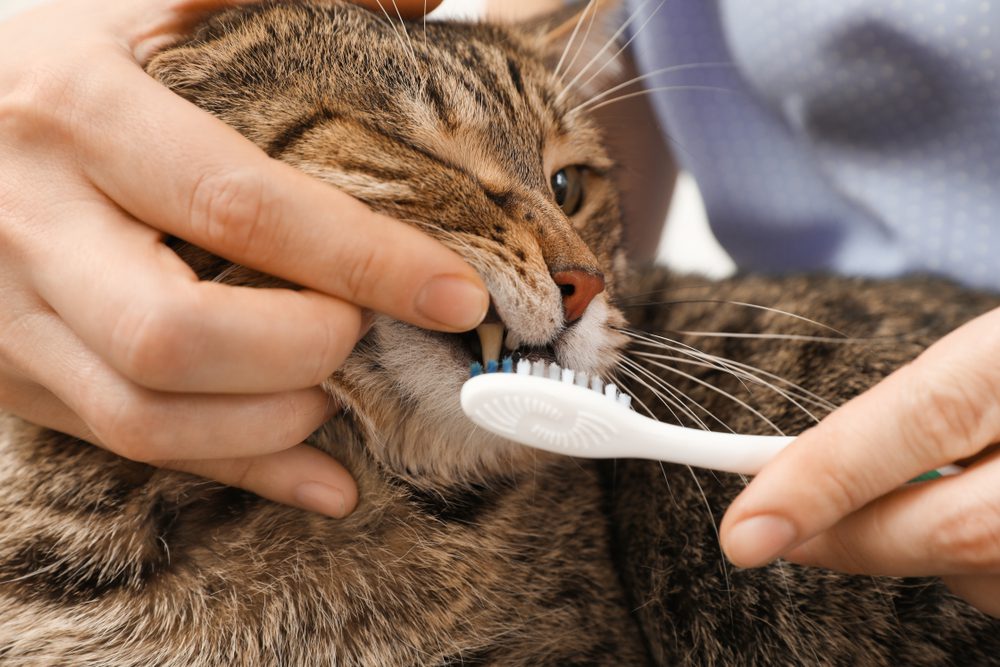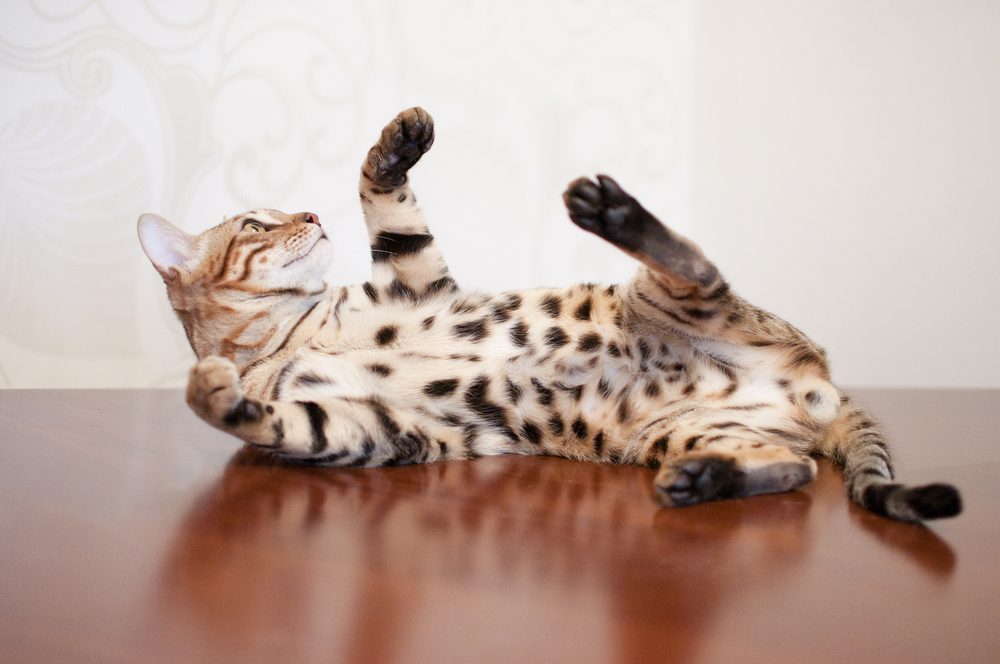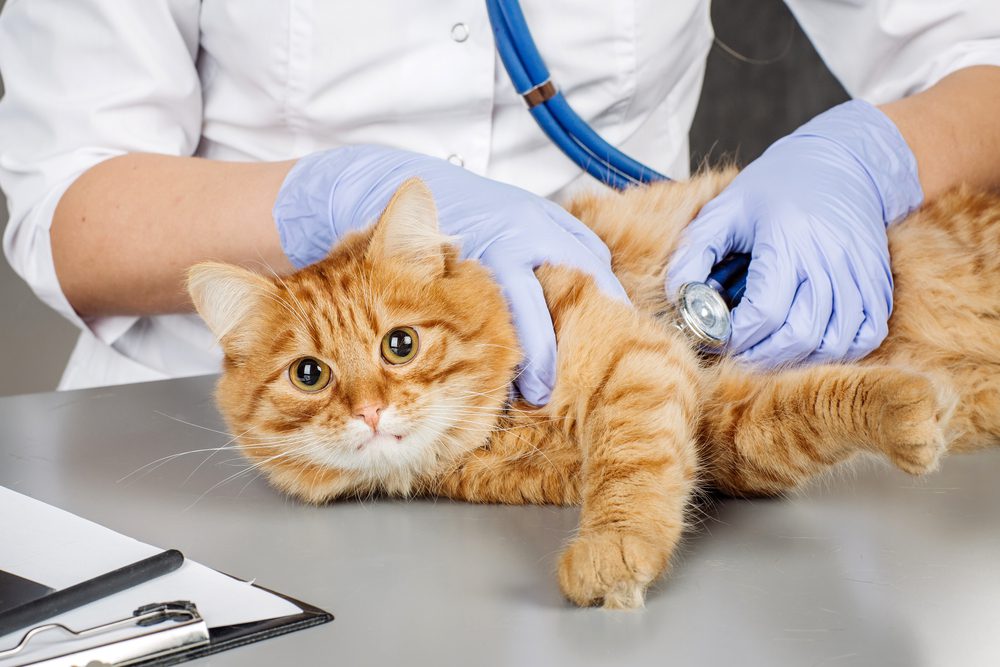6 Ways to Tell if Your Cat Has Oral Problems:
Just like any other creature, cats can suffer from oral diseases as well. Unfortunately, they are like young children because they can’t tell you when their teeth, gums or mouth hurt. In fact, according to animal experts, cats can hide the pain, so their symptoms can be quite difficult to identify.
But if you want to make sure that your cat is healthy and safe, you have to schedule regular vet check ups, provide them healthy food, meet their needs and pay more attention to their behavior. Thus, to better understand their behavior and reactions, especially when they are in pain and suffer from oral problems, you have to do a little research, so you could start by reading this article where you will find more details about signs of oral problems in cats.
That being said, you should remember that cats may show signs of pain, but they are very difficult to notice, so you need to know the subtle signs very well. Read on to find out more info!

Bad breath
According to Eric Davis, DVM, a fellow of the Academy of Veterinary Dentistry and director of the Dental Referral Service at Cornell University’s College of Veterinary Medicine, in general, healthy cats don’t have bad breath. But if you notice that your cat has bad breath it may be a sign that they have oral problems, such as periodontal, gum infection, kidney, respiratory, liver disease or even diabetes.
Animal experts say that bad breath is linked to periodontal disease in cats. Periodontitis is caused by untreated gingivitis, which is a condition that affects their gums, causing an infection that damages the soft tissues and can destroy the bone that supports their teeth in the long run. As in the case of dogs, you have to brush their teeth regularly, but your veterinarian will give you more details about this procedure.
However, these diseases can be prevented if you don’t skip regular vet check ups, take care of their teeth and pay more attention to their nutrition.
Loss of appetite or dysphagia
To notice this symptom, it’s very important to pay special attention to their eating behavior, namely that you have to detect if your pet avoids dry food, chew only on one side, vomiting and so on.
So, difficulty eating or also known by its medical name, dysphagia, is the difficulty of swallowing and chewing food, which can lead to loss of appetite and weight loss in cats and is caused by a lot of treatable or untreatable factors, such as the trauma to the jaw and tongue, disorders of the nerves of the head, and dental diseases.
Treatment of dysphagia includes special food, antibiotics, surgical correction, removal of unhealthy teeth, medication and so on.
Ptyalism
Ptyalism (also called hypersalivation or rarely sialorrhea) is characterized by an increased amount of saliva in the oral cavity of your cat while eating. You may notice this symptom especially when your cat eats (you can see blood on food or in saliva). Ptyalism in cats is often caused by gingivitis.
In some cases, drooling may be a reaction to a possible exposure to certain toxins, such as plants or other dangerous substances. However, your veterinarian can help you with diagnosis and an appropriate treatment. In addition, the clinical oral examination requires the inspection of all teeth, because most of the time, it is a symptom of dental disease.
Shivering and teeth chattering
Chattering in cats may be a sign of oral disease. Unfortunately, this is a painful condition that can lead to holes similar to cavities in the teeth or can destroy the root of the teeth.
Chattering occurs when a cat eats, grooms or washes their faces and is triggered by pain. Many people think that chattering is normal in cats, but animal experts say that this symptom is actually a sign that your cat is suffering from an oral problem.

Your cat is rubbing their face
If you notice that your cats are rubbing their faces, they are trying to tell you that something is wrong with their oral health. Rubbing their faces may be a sign that they experience severe pain and they are probably trying to tell you to take them to the vet as soon as possible.
In this case, it is your responsibility to schedule an appointment with your veterinarian and follow their advice. They will examine your cat’s mouth, stabilize a diagnosis and prescribe you the right treatment for your beloved furry friend.
They stop grooming
We have to admit that cats love to groom themselves, but if you notice that your beloved companion stops grooming it may be a sign that they suffer from oral diseases. In general, cats that no longer groom themselves may suffer from gingivitis. This oral disease can be really painful for your cat, so you have to take them to your vet as soon as possible to solve the problem.
Excessive yawning and teeth grinding
If oral problems are advanced, your cat might have a hard time closing her mouth. Eventually, this could result in excessive yawning and even teeth grinding. If that’s the case, you should book an appointment with the vet and see if there are any dental problems you might not be aware of.
Head shaking
As head shakes and head tilts are oftentimes associated with ear problems, a cat that’s in deep pain from dental issues might shake her head excessively, or even tilt her head where it hurts. So if that’s the case with your feline, make sure you notice in which direction is her head tilting. Also, if you notice that head shaking occurs at the same time as drooling and any other sign mentioned on this list, then the first thing that you’d have to suspect are definitely dental issues.
Avoiding you when you’re touching her mouth
Resorptive lessons and gingivitis can be awfully painful. In fact, if you know that your feline usually enjoys being pet on the head and scratched on the chin, then a change of behavior in these matters could indicate a dental problem. When they are in deep pain (usually caused by oral problems), cats tend to become a bit more shy and even aggressive when touched.

Changes in behavior
It’s highly important to spot any kind of changes in your cat’s behavior because these changes could indicate a serious oral issue. They usually range from growling and aggressiveness all the way to hiding and avoiding you at all costs. For instance, if your usually sweet-tempered Maine Coon starts biting you all of a sudden, then this particular kind of abnormally aggressive behavior could be nothing but the cat’s way of dealing with the pain.
If you are the proud owner of a little ball of fur and you want to learn as many things as you can about health and proper care, then we congratulate you! Luckily, we have a full range of articles in this department, so you are definitely in safe hands! Here’s what we recommend you read first: These 7 Cute Cat Breeds Have the Most Health Issues











